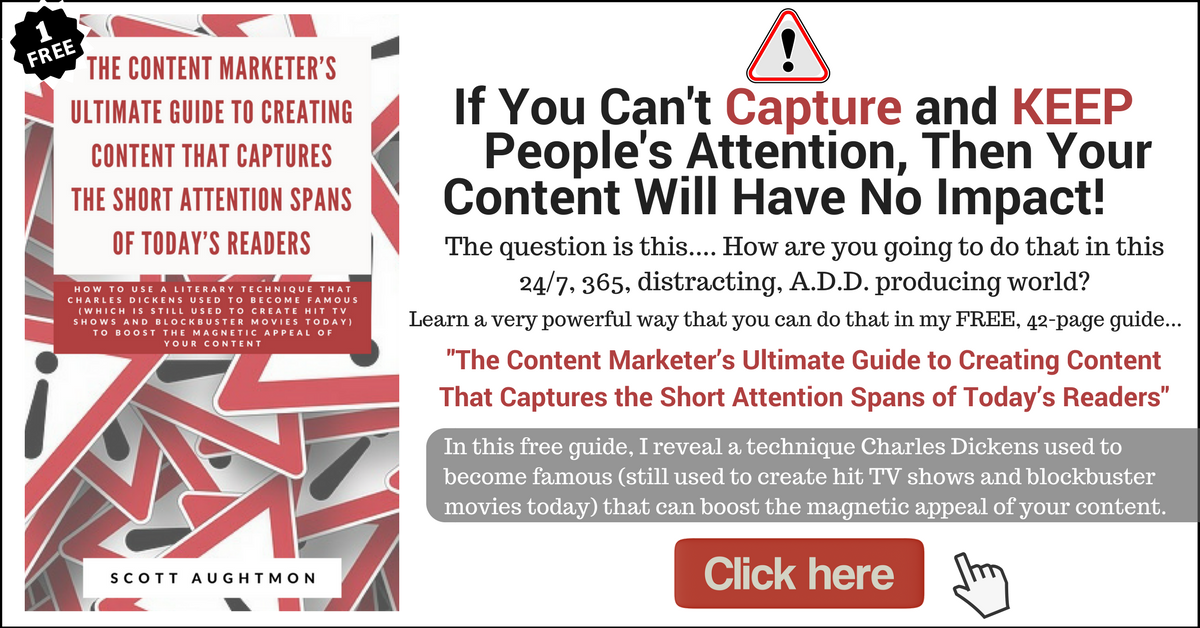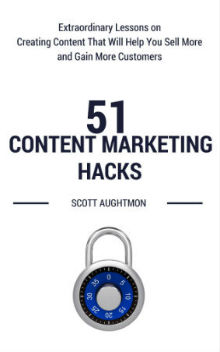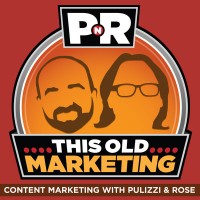 Many of us work hard on presenting quality content through writing and/or speaking. We work hard to make what we communicate as powerful and relevant as we can.
Many of us work hard on presenting quality content through writing and/or speaking. We work hard to make what we communicate as powerful and relevant as we can.
And we should.
But most of us never think of the almost invisible impact that anticipation and expectation has on the content we present.
Watch the video to learn more…
OR read the rest of this post below…
Let me give you an example:
Imagine Chris Rock stepping onto a stage. (Really imagine this.)
He says, “Have you ever thought how dumb people are?” (Hear it in his voice.)
And some people start laughing immediately and nodding, agreeing in their minds thinking… “Hahaha! We ARE dumb!! He’s so right!”
Then he says, “I’m mean SERIOUSLY dumb!” (You are imagining his voice, right?) More people are smiling and nodding thinking, “You know he is right. We really are SO dumb!”
Then he finally says, “We’re so dumb they have to write instructions on toothpaste!”
And crowd goes into hysterics!!! They’re all thinking, “He’s RIGHT! They DO put instructions on toothpaste!! Oh my goodness! How crazy! We’re IDIOTS!!”
Now what just happened here?
Anticipation and expectation made Chris Rock funny to the crowd.
But is Chris Rock actually funny? I think so!
I crack up whenever I hear him. But he’s even FUNNIER because I expect him to be funny!
Let me prove it to you… If I got up on the stage and said, “Have you ever thought how dumb people are?”
People would stare critically at me – judging to see what I was going to say next. Most would be thinking, “This dude better be funny!”
Then imagine I said, “I’m mean SERIOUSLY dumb!”
People in the audience are sitting there with slightly frustrated looks on their faces thinking, “We get the point. People are dumb. Now get to your POINT, dummy!”
Then I finally say, “We’re so dumb they have to write instructions on toothpaste!“
And the audience doesn’t applaud. There is maybe a courtesy laugh or two but that’s it. Nothing, except crickets making sounds in the background.
And everyone is sitting there thinking, “That’s IT? Toothpaste. Oh man. Can’t wait for the next act. This person is LAME!”
How come no one laughed? Was my timing bad? Maybe.
But I said the EXACT same joke that Chris Rock did!?!
(Disclaimer: As far as I know the above is NOT an actual Chris Rock joke, so don’t blame him on whether it’s actually funny or not. I just made it up off the top of my head.)
What was missing? Anticipation and expectation.
This doesn’t just apply in the world of comedy. It’s true in all arenas of life. Let’s take business and marketing as an example.
Seth Godin is one of my favorite authors and bloggers.
But sometimes I’ve noticed something interesting happen. Like all of us, Seth has some days where his content is better than others.
But the interesting thing is when he writes one of those average posts it will still gets tweeted and shared by a bazillion people.
Is it because it was really that awesome of a post? No.
It was just average. But because SETH GODIN wrote the post, it carries a level of anticipation and expectation that causes people to feel it is better than it is.
If I took the same post and put the name “Joe Schmoe” on it, I probably couldn’t get even one of the same people who tweeted it with Seth’s name on it to tweet the same exact post with “Joe Schmoe’s” name on it.
Now is Seth an awesome thinker and writer? I think so. Do most of his posts contain better insights than the average blogger? I’d say, “Yes.”
But we still need to realize that the power of anticipation and expectation is giving Seth a leverage with his content that most new-comers don’t have.
This is what we need to learn from this…
We need to focus on presenting good content, but we need to remember that without anticipation and expectation we might get less of a response to the content we present than we had hoped.
How do we change or improve people’s expectation and anticipation of our content?
3 Ways To Improve Anticipation & Expectation Of Our Content:
1. It comes from people’s’ previous experience with your content.
That means we still need to do our best presenting ideas in the best way we can. There’s no way around it. Anticipation and expectation won’t make lame content better. It might make good content seem better. But it’s not magic. Sorry.
2. It comes from how you carry and present yourself and your content.
Pay attention to how you dress, your posture, how you speak or write, because it creates anticipation and expectation. But it not only comes from the way you look, it also comes from the look and the layout of your blog. Make sure that the “you” you portray gives off the correct anticipation and expectation for what you are saying.
3. It comes from what people have heard about you from others.
If everyone says you are funny, or smart, or great at something, then people will believe and expect you to be. (This is even more true if the everybody is the “media.”) You need to think about how many people share what you say with others on Google+, or “Like” your content, etc. Do whatever you can to get people who think highly of your content to share their opinion with others.
Alright, your turn.
What other things do you think can improve the anticipation and expectation of our content?
Related Posts
- VIDEO: Content Marketing Secrets From The Grammys (RecessionSolution.com)
- Lethal Generosity: The Key To Your Online Content Strategy (Junta42.com)
- “60 Minutes” Creator And An Effective Content Marketing Formula (RecessionSolution.com)
DON’T FORGET TO CLICK HERE TO SIGN-UP FOR MY “RECESSION SOLUTION BLOG” UPDATE LIST.
You don’t want to miss updates or special content from me, right? 
[author] [author_image timthumb=’on’]https://recessionsolution.com/wp-content/uploads/2011/12/photo1.jpg[/author_image] [author_info]Scott Aughtmon is a “business recession solution expert“, a “content creation expert” , and a speaker. He’s spent over 12 years studying effective marketing and business methods (both online and offline).
You can read some of his content marketing articles for “Content Marketing Institute” here.
He’s the author of two e-books called “How Your Business Can Survive And Prosper In A Recession” in which he interviewed 38 top business, marketing and sales experts and got them toreveal their methods to help business owners survive and prosper in a recession. Scott has also been interviewed on radio shows and asked to share his wisdom to help business owners survive and prosper in a recession. Read more of Scott’s insights on his blog. Follow Scott on Twitter @rampbusinesses or on Google Plus at +scott aughtmon, +content creation methods, or +recessionsolution.com [/author_info] [/author]






